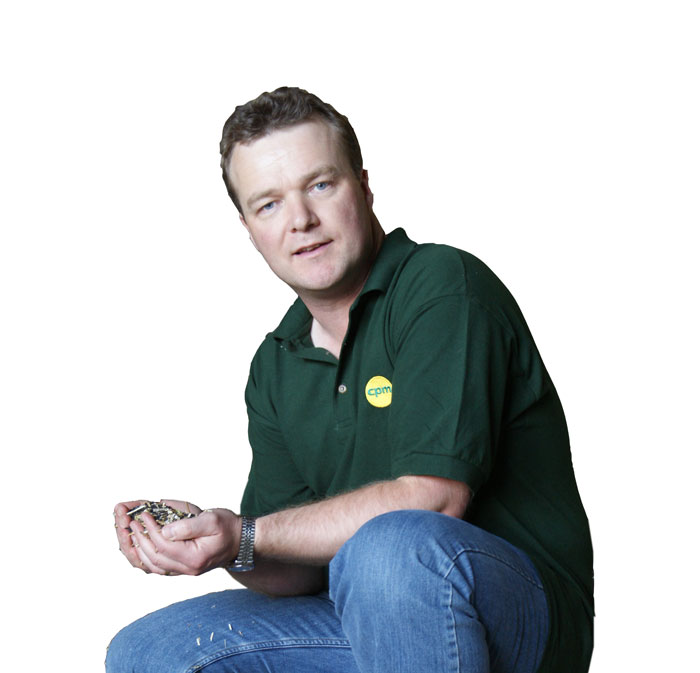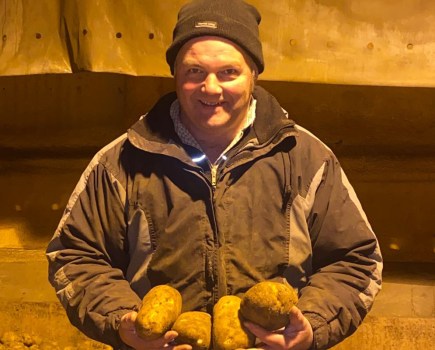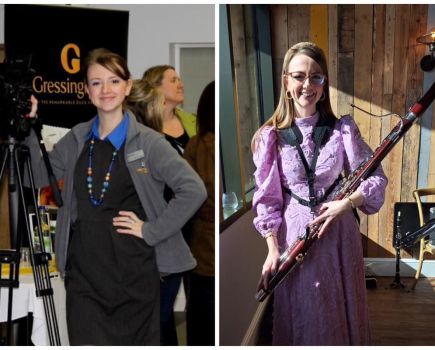Knowing what I now know, I don’t think I’d want a return to the days of routinely using neonicotinoid seed treatments on my oilseed rape.
Don’t get me wrong – I strongly disagree with Michael Gove on this. He believes “the weight of evidence now shows the risks neonicotinoids pose to our environment is greater than previously understood”. I simply don’t think that’s true and teeters on the brink of sound science. There may be one or two studies that show there’s a risk, and this is probably a risk that we weren’t previously aware of.
But as farmers and good stewards of the land, we mitigate against that risk and have only ever used neonics as a proportionate measure, balancing all risks. We’re actually pretty good at balancing the needs of our natural environment – it’s what we’ve done for generations – and frankly it’s pretty insulting when a politician assumes he or she knows better.
I’ve lived without neonics now for a number of years, however, and it’s actually not that bad. I do know the pain of losing an entire crop to flea beetle, and completely sympathise with those in hotspots for whom growing OSR is a lost cause. But for me, the potential, albeit unknown, risk to bees isn’t worth it – we can grow the crop in such a way we don’t need to rely on the chemical protection neonics afford.
So what about the total ban on neonics, including for cereals and sugar beet, that hangs over us like the sword of Damocles? We’re led to believe that Michael Gove now favours that, and sources suggest that Defra chief scientist Prof Ian Boyd supports it too.
That in itself poses a number of questions: firstly, is the weight of scientific evidence really that great it’s convinced Prof Boyd? There is a claim made by ecological activists that neonics drench the soil to such a degree it contaminates the field margins and hedgerows, with resulting damaging effect on bees. If that was truly the case, I don’t want them on my land either, and I’d feel mightily betrayed by the agchem industry for not making me aware of this risk.
Or is Prof Boyd being strong-armed by the political argument? Mr Gove’s clearly in a cleft stick – he has the weight of public opinion stacked heavily against neonics, but has always pledged categorically he’d be guided by sound science. To save his political skin, his only way out is to persuade Defra’s chief scientist to twist the science. It would be a fairly treacherous thing to do, but then Mr Gove’s got form.
Or is there a new argument here? Perhaps Society has shifted what it now regards as unconscionable risk, and it’s time we shift our view of how useful we feel these products are. If I go back to where I started, losing neonics on the OSR hasn’t actually been that bad. If we make the argument too strong that we depend on these chemicals, we’re turning ourselves into the very monsters that ecological activists would have the public believe that we are.
So there is an argument that the loss of neonics on OSR has made us stronger, better farmers (and apologies again to those in CSFB hotspots). It’s a bit like the lack of a new mode of action on blackgrass has forced us to adapt and step out of our chemical comfort zone. Such moves propel us towards new ways to farm that perhaps we wouldn’t have contemplated otherwise. Is this not a good place to be, especially when you consider the new £90M fund that’s up for grabs to translate research that’s currently languishing in the so-called Valley of Death into on-farm practice?
I think it throws into question what we actually want from science. Do we want it to be sound? This implies it’s dependable, we know where we are with it, but perhaps it’s a ball and chain that prevents the industry from exploring too far from its comfort zone.
Science should be the unexplored, the disruptive, the experience you don’t know until you’ve had it. If we continually bleat about how important sound science is, we shouldn’t be surprised when we’re denied some of the new technologies that unsound science has to offer. I’d go further – If Mr Gove bans products that have not been conclusively proven to be disproportionately risky, he must in the same act sanction those, such as GMOs, that science has overwhelmingly shown are safe.
So let’s embrace this uncertain world. Then no one – not even the do-gooder activists – could deny us the opportunity to at least try some of the wonders we may discover that are currently stuck in pre-commercial purgatory. Maybe one day we’ll then look back and laugh about how we thought we couldn’t manage without neonics, or, dare I say it, glyphosate.
Tom Allen-Stevens has a 170ha arable farm in Oxon, and would welcome a sound scientific solution to the pigeons on the OSR. @tomallenstevens




